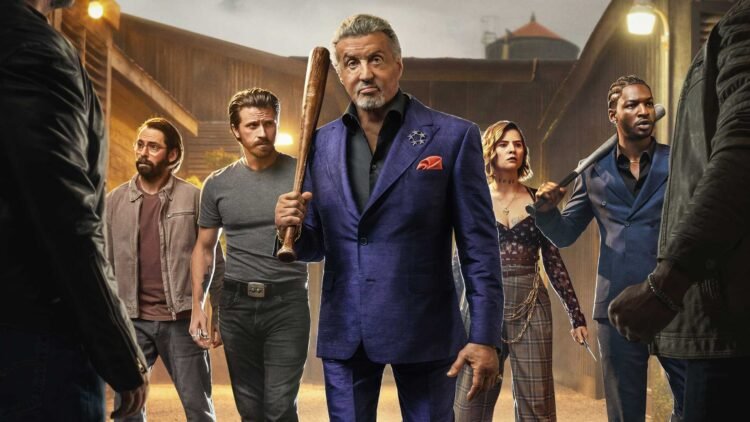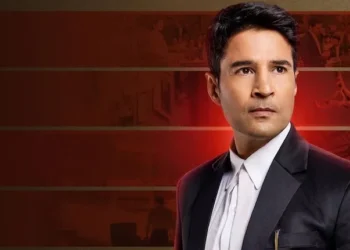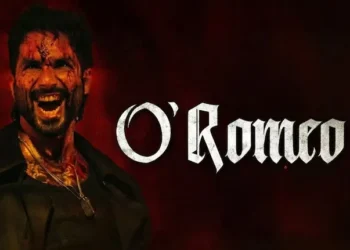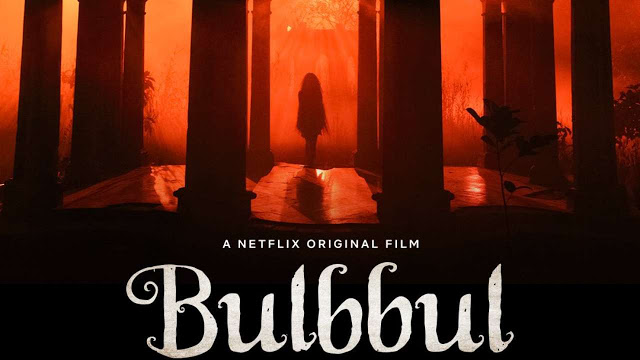Among today’s lineup of crime dramas, Tulsa King Season 3 stands out by keeping the tone light and entertaining rather than dark and brooding. This isn’t your typical gritty mob tale—there’s a self-awareness to the show, almost as if it winks at the audience, reminding us that while the stakes remain high, the ride is meant to be enjoyable.
Once again, Sylvester Stallone reprises his role as Dwight “The General” Manfredi. As Dwight continues to expand his criminal network in Tulsa, Oklahoma, the series balances mob intrigue with humor, giving viewers a refreshing alternative to traditional crime sagas.
Story
Season 3 introduces Cleo Montague (Bella Heathcote), an old flame of Mitch Keller (Garrett Hedlund). Her family background in the whiskey business sparks an opportunity for Dwight and his team to broaden their empire. However, their ambitions clash with Jeremiah Dunmire (Robert Patrick), a formidable new antagonist who believes the lucrative whiskey trade belongs to his family. Known for their ruthless approach, the Dunmires refuse to back down, creating an inevitable showdown.
Adding to the tension, Dwight must navigate the fallout from the explosive conclusion of last season’s finale, “Reconstruction.” His loyalty is tested more than ever, making this chapter one of the most emotionally challenging for the character.
Performances
By the third season, the ensemble cast seems fully settled into their roles. The first season focused on establishing tone, the second on character development, and now the chemistry feels seamless.
The story is pushed ahead largely through the strength of its performances, and the characters manage to stay engaging right when it counts. Sylvester Stallone reclaims his spot as a commanding lead, with his creative influence evident throughout Tulsa King. At the same time, viewers are treated to fresh faces and wider storylines featuring talents like Robert Patrick, Kevin Pollak, and James Russo. The ensemble thrives alongside Stallone, with the show’s energy and appeal rooted firmly in the cast’s dynamic performances.
In particular, the evolving dynamic between Dwight and Tyson Mitchell (Jay Will) is a standout. Tyson looks up to Dwight as a mentor, eager to prove himself, while Dwight grows into a paternal role in Tyson’s life. This relationship deepens the heart of the series, showcasing loyalty, disappointment, and growth in ways that resonate with viewers.
Behind the scenes
Just as in Season 2, Sylvester Stallone co-writes several episodes this season, and his influence is clear. Much like his work in the Rocky franchise, Stallone plays to the strengths of each performer, crafting dialogue that highlights their personalities and chemistry.
The banter between Dwight and Bill Bevilaqua (Frank Grillo) is a prime example. Both hailing from New York, Stallone and Grillo capture the city’s rhythm in their exchanges—an authentic mix of sharp wit, volume, and humor. Their back-and-forth brings natural comedy to the show and leaves audiences wanting more, even beyond the world of Tulsa King.
Rather than sinking into the heavy darkness that defines many mob-related shows, Tulsa King Season 3 embraces levity and playfulness without losing tension. The humor, light-hearted interactions, and fast-paced storytelling make it a crime series you can enjoy without feeling weighed down.
By blending mob drama with comedic touches, the show positions itself uniquely within the genre. The stakes remain serious, but the delivery keeps audiences entertained, leaving them eager for the next episode.
Final Verdict
Tulsa King Season 3 doesn’t drastically rewrite its formula, but it continues to refine what already works. With Stallone’s charisma, fresh conflicts, and compelling character arcs, the series offers mob drama with a welcome dash of charm. For fans tired of grim crime shows, this season proves once again why Tulsa King is the most fun you can have in the world of mob storytelling.
Tulsa King Season 3 is now streaming on Paramount+ and from September 22 on JioHotstar in India.























